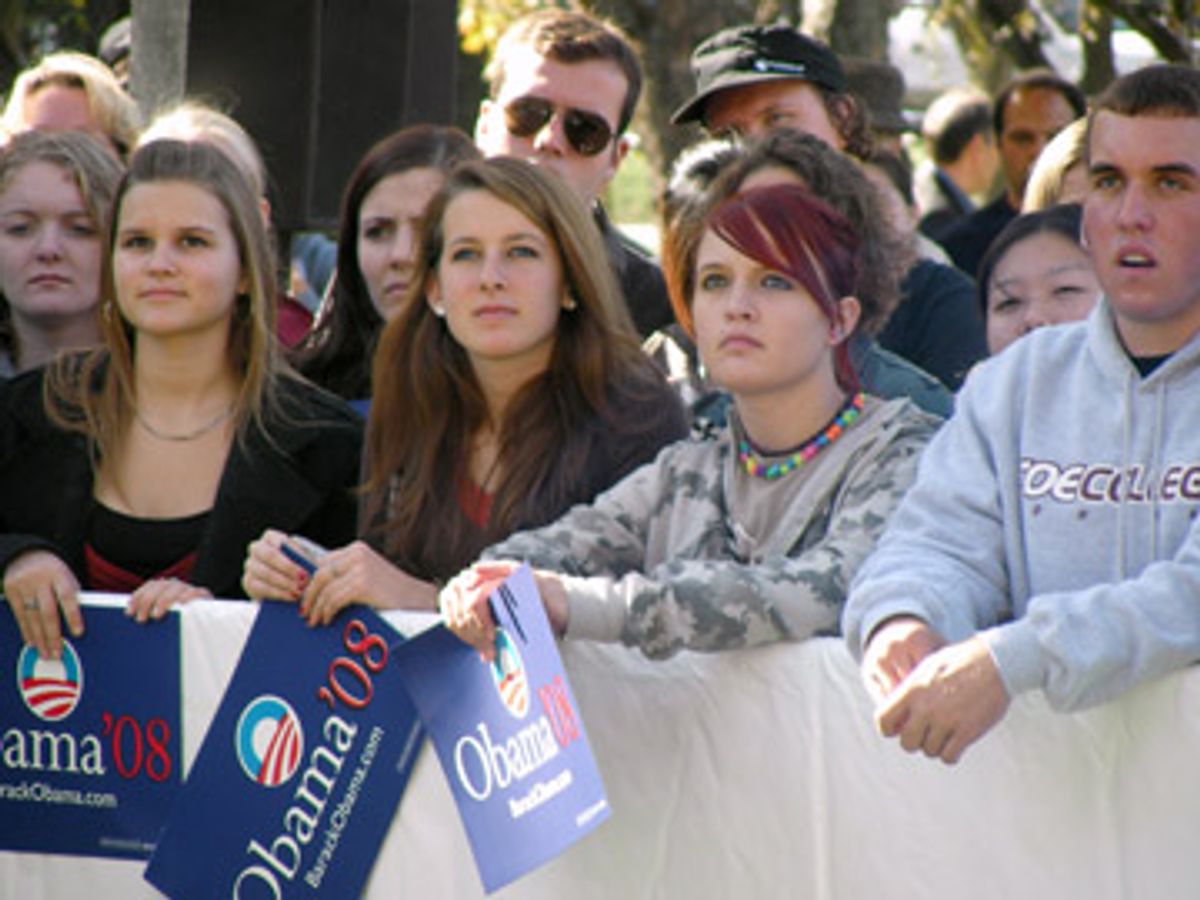
Republicans who worry about their party’s long-term prospects tend to focus on the ways the party’s leaders have been alienating Latinos and women. But newly published research suggests the GOP may have an even bigger problem: The generation that is just emerging.
In “Growing Up in a Recession,” published in the Review of Economic Studies,economists Paola Giuliano and Antonio Spilimbergo report that people who experienced a recession “during the critical years of early adulthood” generally “support more government redistribution, and tend to vote for left-wing parties.”
After examining three different data sets, they conclude “the effect of recessions on beliefs is long-lasting.” According to their analysis, coming of age in a lousy economic environment breeds the belief that “success in life depends more on luck than effort,” which in turn leads to more support for social welfare policies.
Giuliano and Spilimbergo first analyzed data from the General Social Survey, a nationally representative sample that gathers information from about 1,500 Americans every other year. They compared answers indicating ideology, political affiliation, and beliefs regarding assistance to the poor, with regional recessions that took place during the respondents’ young adult years.
They found that experiencing a recession during young adulthood “affected the probability of voting for the Democratic Party in a sizeable manner”—as much as 15 percent for people who were young during the Great Depression.
That same pattern was found in an analysis of the World Value Survey, which includes data from 37 countries. The researchers found “a positive association between experiencing a macroeconomic disaster when young and both left-wing ideology and affiliation with a left-wing political party.”
“There is no systematic effect of macroeconomic shocks on preferences for redistribution or political behavior during other periods of life,” they add.
The likely reasons for this are clear enough. If you come of age at a time when traditional values such as hard work and perseverance don’t necessarily pay off, you’re imprinted with a sense that economic success is fragile and unpredictable. And that increases the odds you’ll develop a belief system that prioritizes assistance for the needy.
That said, there are no guarantees that the next generation will vote straight Democratic. When an earlier, unpublished draft of this paper was circulating back in 2009, conservative columnist Ross Douthat replied that recessions “only benefit liberals when an activist government is perceived to have answers to the crisis.” Whether the Obama administration qualifies is TBD.
Either way, the study provides more evidence that early-life developments shape political attitudes—a phenomenon that has also been observed in relation to the Vietnam War draft. As Giuliano and Spilimbergo put it: “Shocks experienced during early adulthood have a permanent effect in the formation of beliefs.”



Shares